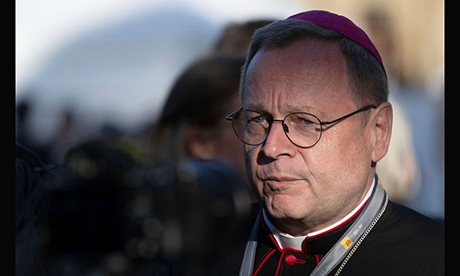On Friday Germany’s Synodal Way approved a text on the role of women in the Catholic Church, one that challenges the exclusion of women from sacramental ministry.
The vote took place on the second day of the plenary session. The document “Women in ministries and offices in the Church” was facing its second reading.
The text does not call directly for the ordination of women as deacons and priests but says “for generations, many women have known that they were called by God to be deaconesses or priestesses”.
The document proposes that “in future, it should no longer be gender that decides on the allocation of ministries, but the vocation, abilities and skills that serve the proclamation of the Gospel in our time.
“It is not participation by women in all the Church’s ministries and offices that requires justification, but indeed the exclusion of women from the sacramental ministry,” the document says.
The Pillar, a catholic publication, reports that of a total of 205 votes, 182 voted in favour and 16 against, with 7 abstentions.
Adoption of the document required a two-thirds majority of the German bishops, 45 of whom voted in favour and 10 against. There were 5 abstentions.
Proponents of the document repeatedly addressed the synodal way’s minority, urging them to voice their objections and trying to anticipate their concerns.
Procedures were altered with votes no longer cast anonymously but by name.
The Pillar also reports participants standing and applauding the announcement.
The result was a surprise change.
On Thursday, a minority of Germany’s Catholic bishops blocked a measure calling on Pope Francis to liberalise church teaching on sexuality.
After the Thursday voting figures were released, there was a protest and some participants left the meeting.
Bishop Georg Bätzing (pictured), chairman of the German Bishops’ Conference, told the assembly that the vote was a huge disappointment. He added that the outcome had created a “crisis-like atmosphere” in the meeting.
Bätzing called on all members to accept the result.
The statement on sexual ethics called for removing traditional prohibitions against contraception, homosexual acts and masturbation and for permitting the blessing of same-sex unions.
“The teaching that regards sexual intercourse as ethically legitimate only within the framework of a legal marriage and only in the constant openness to the procreation of offspring has led to a far-reaching rupture between the Magisterium and the faithful,” the statement said, referring to the church’s teaching authority.
